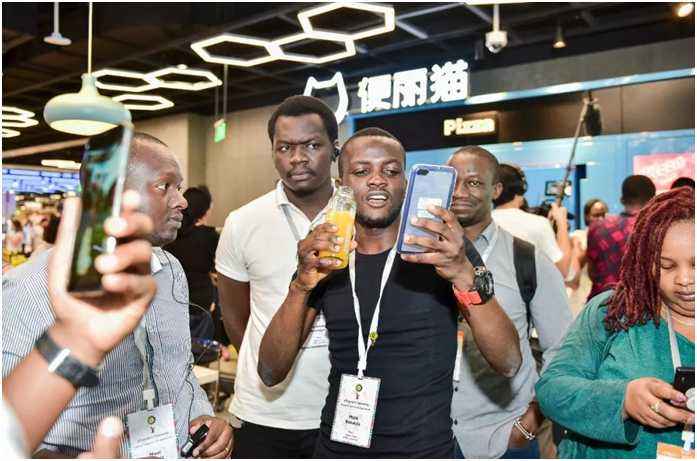An "African Medical Supplies platform", dubbed "The Alibaba of Africa", has been unofficially launched. The African Medical Supplies Platform will not only ensure the continuous supply of anti-epidemic supplies to Africa, but also effectively relieve the pressure on African economies and boost the integrated development of Africa.
With the recent launch of the African Medical Supplies Platform announced by African Union President Cyril Ramaphosa, Africa has a new platform to join hands in the fight against coVID-19. According to Mr Ramaphosa, the platform is an online procurement site that can be seen as "the Continent's version of Alibaba or Amazon", but buyers are not individuals but African governments. Open the website of this platform, you can see a full range of anti-epidemic materials, including masks, test kits, ventilators and so on. Many of them are standard KN95 masks made in China, and many of them are labeled "Made in Africa". The launch of the African Medical Supplies Platform will not only ensure the continuous supply of anti-epidemic supplies to Africa, but also effectively relieve the pressure on The African economy and boost the integrated development of Africa.
Although the international community, including China, has donated several batches of anti-epidemic materials to Africa, African countries are still generally facing the shortage of protective materials, procurement difficulties and other problems, and medical workers are seriously infected. According to members of the Chinese government's anti-epidemic medical expert team, when they visited Malabo Hospital, the largest public hospital in Equatorial Guinea, they found that the nurses on duty in the isolation ward of COVID-19 patients rushed to the forefront of the fight against coVID-19 only wearing cloth masks as protection. In South Africa, the country with the highest number of cases in Africa, 3,583 health workers were infected with COVID-19 as of 16 June, with 34 of them having died. The shortage of protective supplies has severely weakened the confidence and fighting capacity of African health care workers and worsened the already fragile public health system in Africa.
To ensure the continuous supply of anti-epidemic materials, the "African Medical Supplies Platform" came into being. The African Center for Disease Control and Prevention will be responsible for collecting supply and demand information from AU member states. African governments will not need to spend time and energy searching for medical supplies from all over the world. They will be able to purchase supplies from all over the world with just a click on the Internet. This platform saves purchasing time for all countries through bulk purchasing, directly connects certified quality manufacturers, suppliers and governments, avoids the corrupt behavior of "profit difference" and "kickback" among supply chain intermediaries, improves the transparency of procurement, and brings more competitive prices. The platform has set procurement quotas for each country based on the level of material scarcity, so as to avoid large-scale hoarding by a country causing the platform to run out of supplies. In addition, by centralizing the procurement demand for medical supplies, the platform also shows the vast market of the entire African continent to suppliers, ensuring the continuous supply of anti-epidemic medical supplies.

"Made in Africa is our target." Ramaphosa said the African Medical Supplies Platform is not only working with the Chinese government and Alibaba Group, but is also committed to providing showcase opportunities for local manufacturers and suppliers in Africa. The epidemic has hit African manufacturing industries hard, especially small and micro businesses, but it has also prompted many enterprises to turn to the production of epidemic prevention materials and spurred technological innovation. In Senegal, scientists developed the Novel Coronavirus Rapid Detection Kit at an average cost of $1 per person. In Ghana, entrepreneurs created a non-contact water dispenser powered by solar energy, reducing the possibility of the virus spreading through Shared drinking water facilities; In Burkina Faso, a programmer has developed a mobile application to help users quickly determine whether a novel Coronavirus is infected by their symptoms.
Through the platform, African governments will purchase "Made in Africa" medical supplies and services, which will save the African manufacturing industry affected by the epidemic. The African Medical Supplies Platform, hailed by Ramaphosa as the "jewel in the crown of Pan-African cooperation", will further cement the foundation of the Free trade area on the African continent.
Moreover, The African aviation industry has been greatly affected by the epidemic. The launch of the "African Medical Supplies Platform" will bring a large number of cargo demand, providing an opportunity for relevant countries to save their airlines. The outbreak has crippled Africa's aviation industry, which provides 6.2 million jobs and $56 billion in GROSS domestic product, and will cost Africa $6 billion in lost passenger revenue by 2020, according to IATA. The 86-year-old airline has been unprofitable for nine years since 2011 and went into bankruptcy late last year, with the outbreak adding to its woes. Ethiopia Airlines, Africa's largest airline, lost $550m in the first four months of the year. After the launch of the platform, relevant African countries plan to use it as an opportunity to rescue their airlines in crisis and help speed up the flow of anti-epidemic materials. South African Airlines and Ethiopian Airlines can increase their cargo capacity, improve their aircraft turnover and reduce their losses through "passenger conversion". Johannesburg, Addis Ababa and other African cities will also become transit points for the delivery of anti-epidemic supplies to the African continent.

